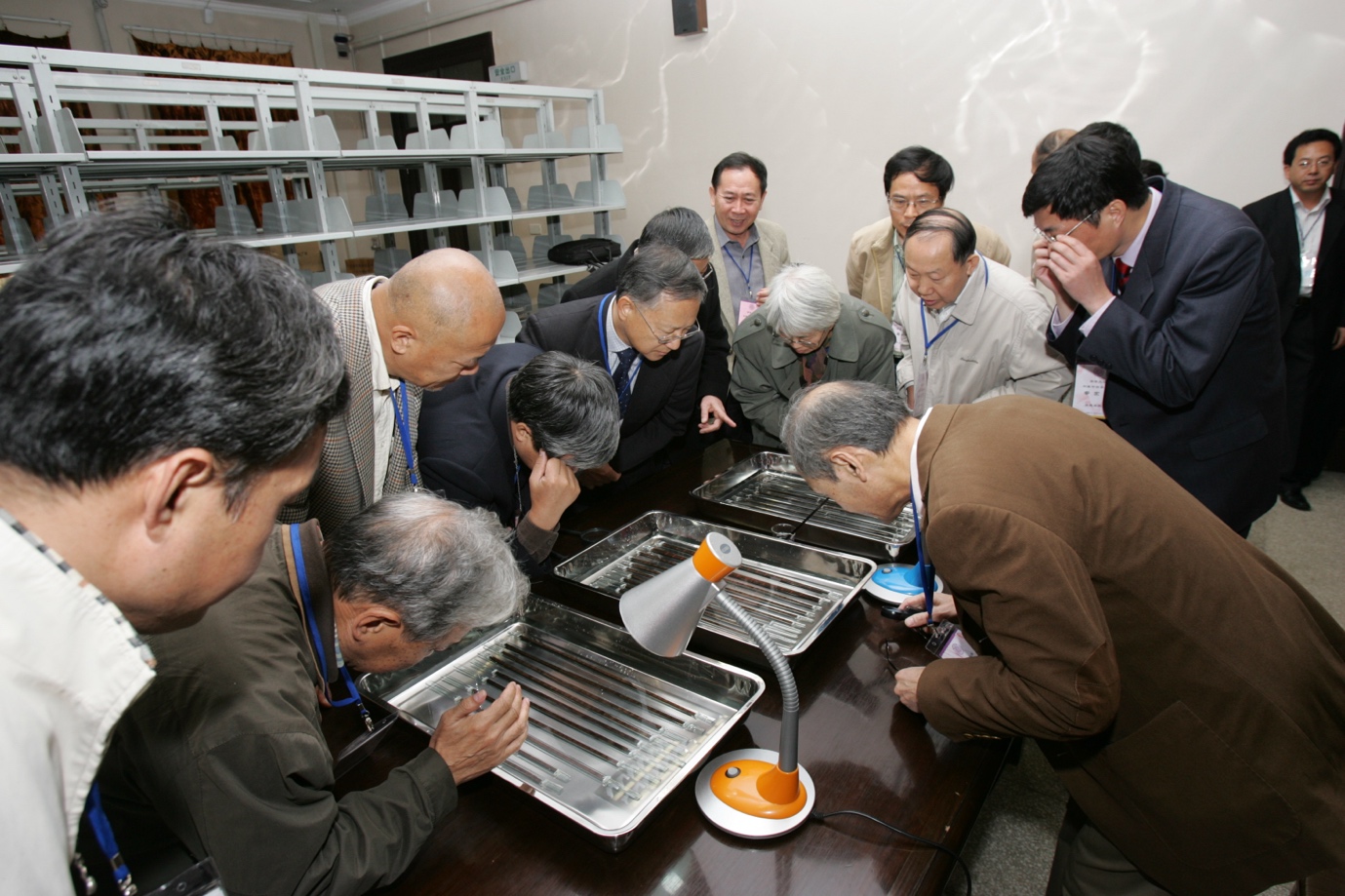Bamboo texts discovered at a Hong Kong market reveal details of modern China’s founding history and philosophy.
Sometime in the early 2000s, a bunch of inked bamboo ‘slips’ — an ancient predecessor to writing paper — were sealed in layers of plastic and consigned to a dark corner of a Hong Kong antiques market. Now known as the Tsinghua bamboo slips, the collection has turned out to contain some of the oldest and most important Chinese texts.
When the authenticity of the slips was confirmed in 2008, Tsinghua University moved quickly. With the support of a wealthy alumnus, who asked to remain anonymous, the university acquired the documents, bringing them into the lab for preservation and intense study.
What the Tsinghua researchers discovered would reveal fine detail of the events that helped establish modern China.

Writings on bamboo slips, dated to roughly 300 BCE, that describe the last testament of King Wen of Zhou (illustrated at left), bring into question the origins of the concept of balance via the middle way. The idea of the middle way or the ‘doctrine of the mean’ has influenced Chinese political ideologies and schools of thought for millennia, and was thought to have been generated by the philosopher Confucious (illustrated at right).
“The Tsinghua bamboo slips have greatly enriched our understanding of the history and culture of China,” says Liu Guozhong, Tsinghua University’s leading authority on ancient Chinese documents.
The slips, when the Tsinghua team first examined them, were soggy but tightly sealed in multiple layers of plastic wrapper. One possibility, says Liu, is that they had laid for more than two millennia in a flooded tomb. Because of this, the slips were relatively well preserved, as their immersion and the subsequent plastic wrapping had protected them from much degradation by oxygen, fungus or bacteria.

The writings on the Tsinghua bamboos slips were likely preserved for more than 2,000 years in an ancient, flooded tomb.
Nonetheless, their saturated state made them incredibly delicate. Liu compares touching the slips to handling a cooked noodle: “they could not stand even the lightest touch”.Carbon dating put the slips at from 305 BCE, give or take 30 years. This was the first of several surprises: most ancient texts were destroyed in a text-burning campaign that swept China in 213 BCE.
Among the hundreds of slips, were three texts that left the researchers breathless. One was the last testament of King Wen, father of the founder of China’s longest ruling dynasty. Another, the Chengwu, reveals fresh detail about how the Zhou were given the ‘mandate of heaven’ to rule. And the last was a very early version of the Shangshu, a collection of governance advice and speeches said to be assembled by Confucius, who lived between 551–479 BCE.
These documents describe philosophical concepts and fundamentals of political thought would help shape governance in China for more than two millennia, and that continue to heavily influence its culture today, says Liu.
Echoes in time
Bamboo slips were among the earliest writing materials in China. Important events, transactions, opinions and advice were inked on to these battens of bamboo, which were then tethered together and rolled into a portable manuscript. The medium gave rise to China’s vertical column writing style
Often, bamboo scrolls were buried in the tombs of nobility, to record their life and wisdom for posterity, or to provide reading material for the afterlife. The Tsinghua slips were probably stolen by tomb-raiders in recent history, and traded among people who didn’t understand their value, until they were acquired by a Tsinghua team led at the time by the late palaeographer, Li Xueqin.
The Xueqin and his team then spent a painstaking three months cleaning, cataloguing and sorting the slips into the correct order, even forgoing the excitement of attending the 2008 Beijing Olympics.

Researchers at Tsinghua University have been carefully preserving and studying the historic texts found on the Tsinghua bamboo slips.
Wen’s middle way
Among the secrets revealed was a new version of a deathbed statement by King Wen to his son, Wu. The document has been called the Baoxun, meaning cherished instruction. Wen, who is thought to have lived between 1152–1056 BCE, began a campaign that was concluded by his son Wu against the rival Shang dynasty. The Zhou dynasty that Wen founded ruled for nearly 800 years — a formative time when Chinese writing, philosophy and governance standards were established.
The Baoxun may even have contained Wen’s last advice to Wu on good governance. Wen counselled his son to put the people first, to govern virtuously, and to pursue ‘the middle way’. The concept of the middle way, of finding compromises, maintaining impartiality, and avoiding extremes of action or behaviour, was previously thought to have been proposed by Chinese philosopher and administrator, Confucius.
The Baoxun potentially “gives us a new understanding of the origin and inheritance of the Confucian doctrine of the mean,” says Liu. Confucian philosophy came to dominate Asia, spreading to Korea, Japan and Vietnam.
Mandate of heaven
The Chengwu relates the story of Wen's ordination as ‘king by heaven’. This document describes how Wen's wife, Tai Si, had a dream in the first year of Wen’s reign in which the rival Shang court was overgrown with thorns. Tai Si saw Wu take trees from Zhou land and plant them in Shang land, where they grew into pine, cypress and oak.
The dream was interpreted to mean that with the blessing of heaven, Wu would overthrow the ruling Shangs and establish a new dynasty. While Tai Si’s dream has been described in other ancient Chinese texts, the Tsinghua Chengwu establishes for the first time exactly when Wen was mandated by heaven.
This mandate would continue to have a significant impact on the dynasties that followed. “In ancient China, people believed that the king ruled the world on behalf of heaven, so heaven's will and choice played a vital role in the legitimacy of each regime,” says Liu.
The Tsinghua slips also contain new chapters and passages of one of the classic books of Chinese literature, called the Shangshu, which “has served as a kind of theoretical foundation on governance for the rulers of different Chinese dynasties,” says Liu.
The Shangshu contains records of everything from advice and admonishments to decrees by Zhou dynasty monarchs and ministers, and was used for a long time as a basis for determining the proper ways to rule and behave.
It is believed to have been compiled and revised primarily during the Zhou dynasty (1046-256 BCE), though some of its content may relate to the earlier Shang dynasty. The new additions to this text from the Tsinghua slips are quite different in content to versions of text that claim to be from a similar era, says Liu, and call into question some of these versions of the text.
Liu hopes that comparing the Tsinghua’s slips with other ancient versions of the Shangshu will provide insights into how and when the most widely accepted version of the Shangshu arose.
Liu says he feels incredibly privileged to be working on the Tsinghua slips. The documents are integral to the history and culture of China, he points out, and his team’s work transcribing the text means they are literally writing Chinese history at their desks.
“I feel very lucky to spend every day with these precious documents,” he says.
Editor: Guo Lili